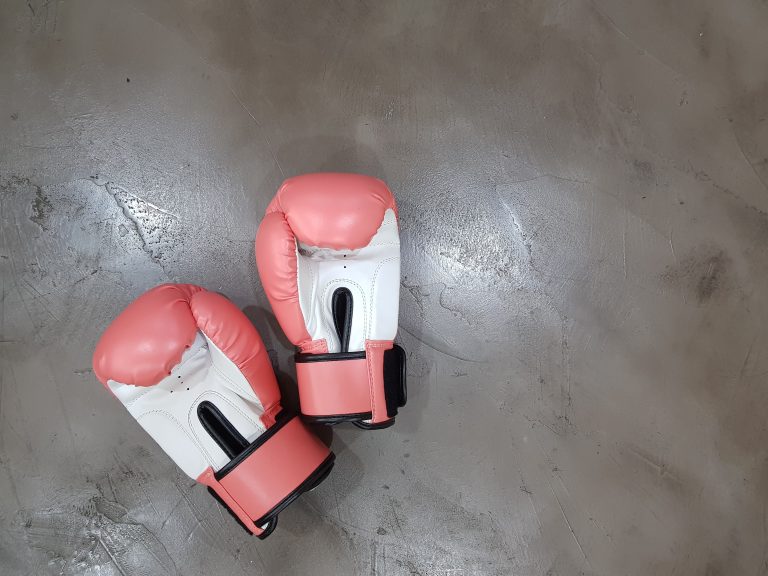The 10 Most Important Karate Rules for Respectful Cooperation
Karate is a martial art that emphasizes respect and discipline both in and outside of the dojo. As you dive deeper into your karate practice, you will learn that your actions and behavior not only reflect your personal character but also represent your dojo and training partners. Here are the ten most important karate rules for respectful cooperation:
1. Bowing Respectfully
Before entering and exiting the training space, you should bow with respect towards the sensei, other karateka, and the dojo. Bowing is a sign of appreciation and acknowledgement, and it shows professionalism and dedication.
2. Train with Your Full Effort
Karate is a challenging and demanding martial art that requires your full attention and effort. When you train with your best effort, you show respect to your sensei and training partners because you are contributing and learning to the best of your abilities.
3. Listen to Your Sensei
Your sensei is your teacher and mentor in karate. Listen to their instructions and feedback carefully, and ask questions if you are unsure. By paying attention and following their guidance, you show respect and trust in their experience and knowledge.
4. Use the Correct Titles and Honorifics
In karate, you should address your sensei and senior karateka by their title(s) and honorifics such as Sensei, Sempai, or Senpai. This shows respect, recognition of their expertise, and appreciation for their guidance.
5. Help and Support Your Fellow Karateka
Karate is a team sport, and you should show support and camaraderie towards your training partners. Help them when they need it, encourage them when they struggle, and congratulate them on their victories. By doing this, you show respect and appreciation for their efforts and contributions.
6. Keep Your Training Area Clean and Tidy
Maintaining a clean and organized training space is essential for respectful cooperation in karate. After using training equipment or facilities, you should put them back in their proper place and clean them if necessary. This not only shows respect for your dojo and training partners but also promotes safety and hygiene.
7. Keep a Positive Attitude
Karate can be challenging and frustrating at times, but you should maintain a positive attitude and mindset. By doing so, you show respect for your sensei, training partners, and yourself. A positive mindset can also help you overcome difficulties and setbacks in training and in life.
8. Be On Time
Being on time is a sign of respect for your dojo and training partners. You should arrive early to class, warm-up, and prepare for training. If you must be late or absent, notify your sensei or senior karateka as soon as possible.
9. Respect Other Martial Arts and Cultures
Karate is a martial art that originated in Japan and has evolved over many years. Other martial arts and cultures also have their own traditions and practices that should be respected. By showing an open and respectful mindset towards other martial arts and cultures, you promote harmony and understanding among all people.
10. Be a Good Role Model
As a karateka, you should strive to be a positive role model both inside and outside of the dojo. Show respect, humility, and integrity in your actions and behavior, and others will follow your lead. By being a good role model, you contribute to the development of a respectful and cooperative karate community.
In conclusion, these ten karate rules for respectful cooperation are essential for anyone practicing karate. By following these guidelines, you can show respect and appreciation towards your sensei, training partners, and yourself. Remember to always practice karate with humility, integrity, and dedication.
The 10 Most Important Karate Rules for Respectful Cooperation: FAQs
Karate is a martial art that has gained immense popularity and has transformed into a professional sport. It teaches self-defense, cultivates self-discipline, and promotes respect and humility. Karate has a set of rules that must be followed by all practitioners, no matter the level of skill or experience. In this article, we will discuss the most frequently asked questions about the ten most important Karate rules for respectful cooperation.
1. What is Karate?
Karate originated in Okinawa, Japan, and has since spread across the globe. It is a martial art that involves using various techniques like punching, kicking, striking and blocking, to defend oneself against an attacker. Karate also instills discipline, respect, and a positive attitude towards life.
2. What are the most important Karate rules for respectful cooperation?
Respectful cooperation is the cornerstone of Karate, and it rests upon ten rules. The most important Karate rules for respectful cooperation include:
- Be respectful: When practicing Karate, always show respect to your opponent, your fellow practitioner, and your instructor. Maintain a humble attitude at all times.
- Be punctual: Be on time for practice sessions and competitions. Arrive before the scheduled time, so you have enough time to prepare yourself mentally and physically.
- Be mindful of hygiene: Be clean and well-groomed during training sessions, competitions, and events. This practice is a sign of respect towards your fellow practitioners.
- Foster positivity: Cultivate a positive attitude towards training and competition, even in the face of adversity. Encourage your fellow practitioners, and remain optimistic at all times.
- Be disciplined: Follow the instructions of your instructor and adhere to the rules of the Dojo at all times. This practice will help you to cultivate discipline and self-control.
- Be attentive: Listen to your instructor and fellow practitioners carefully. This practice will help you to develop your skills and technique, and it will also show respect towards your instructor and fellow practitioners.
- Be humble: Display humility and humbleness. Do not boast about your skills or show arrogance. Instead, show respect towards others and seek to learn from them.
- Be honest: Be truthful in your dealings with others, and do not deceive or cheat. Honesty is an integral part of respectful cooperation.
- Have a constructive attitude: When practicing, focus on improving your skills and technique, not on defeating your opponent. This practice will cultivate a constructive attitude towards Karate.
- Show sportsmanship: After a competition or training session, show respect towards your opponent, whether you won or lost. This practice will show good sportsmanship and promote respectful cooperation.
3. Why are these rules important?
These rules are important because they promote discipline, respect, and humility. They also foster a constructive attitude towards Karate, which can help practitioners improve their skills and technique. Adherence to these rules creates an atmosphere of camaraderie and cooperation, which is essential for safe and beneficial training.
4. What happens if these rules are disregarded?
Disregard for these rules can lead to a lack of respect, unsportsmanlike behavior, and physical injury to oneself or others. It can also lead to disciplinary action, which can include suspension or expulsion from the Dojo or the Karate organization.
5. How can one promote adherence to these rules?
Adherence to these rules can be promoted by leading by example. Practitioners should demonstrate the respect, humility and positive attitude that the rules embody. Instructors should make sure that the rules are understood and adhered to by themselves and their students. Additionally, practitioners should encourage each other to follow the rules and promote an atmosphere of respect and cooperation.
Conclusion
Respectful cooperation is an essential aspect of Karate, and it is upheld through ten rules. The ten most important Karate rules for respectful cooperation promote discipline, respect, and humility. Practitioners who adhere to these rules can develop a constructive attitude towards Karate, improve their skills and technique, and cultivate an environment of camaraderie and cooperation. By promoting adherence to these rules, instructors and practitioners can ensure a safe and beneficial training experience.
Inhaltsverzeichnis





